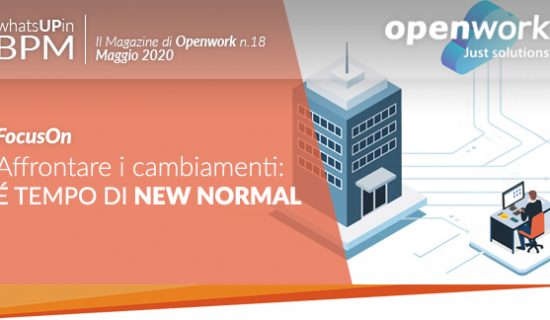Brokeraggio: una parola che ai più riporta al mondo assicurativo. Ed infatti nelle assicurazioni il brokeraggio è “l’attività di mediazione compiuta dal broker, intermediario finanziario specializzato nell’offerta di servizi di ricerca delle controparti sui mercati dei beni e delle attività finanziarie (valute, titoli) in cambio di una commissione, calcolata rispetto al volume di affari conclusi per suo tramite”, fonte enciclopedia Treccani.
Why is this word used in the ICT world today especially in the Application Services Brokerage construct? And what repercussions does it have for business?
Application services brokerage refers to the process of facilitating, managing and coordinating access to application services by an organization or user, even when those services are distributed across different platforms or vendors. A "broker" in this context acts as an intermediary, simplifying the interaction between application services and end users.
What if the broker was a no-code application development platform? Or better yet, what if the platform had among its exposed capabilities the brokerage of application services, implying third-party vendors?
We would have the ability to leverage the same modeling environment used for enterprise application development in which data, processes, organizational components, and activities are modeled, even to extend the capabilities with useful business functionality such as:
- Advanced electronic signature;
- Sending messages with SMS/WhatsApp/Telegram
- Standard Digital Storage
- Survey Features
- Advanced document automation capabilities
- Payment management features
- AI features
But in order for this brokerage can truly bring a competitive advantage there must be a basic requirement that is, the use of each of the above-mentioned (or other) services must be able to be done without the need for:
- Initiate and manage technology scouting;
- Enter into an agreement with each of the service providers;
- Take care of technology integration;
- Orchestrating processes;
- Govern all aspects of security and privacy;
- Manage the contract (for each service);
- Management of user accounts for each service;
- Manage invoices from various suppliers and related payments;
- Taking care of maintenance over time of integration
- Ensure continuity of service

To fully understand what this means think only of the last point, the one about service continuity: in the case where a traditional integration has been implemented and/or a traditional connector has been used, the party managing the software solution still has the task, among others, of managing the expiration of passwords for access to that service as well as ensuring the payment of the invoices that that provider will be issuing on pain of the fact that the integrated service may stop responding except with error messages.
The use of brokerage shifts this aspect (along with all others) to the Provider who is delivering the platform service without any concern for the users who, in a single contract with that Provider and for a single fee, will have the ability to use a multiplicity of third-party services with surprising ease. Ultimately, the synergy between the no-code approach and application service brokerage is revolutionizing the way organizations manage and deploy their application services, promoting agility, speed and ease of use.
Organizations can respond promptly to changing market needs by implementing new application services and quickly adapting their operations.
In summary, brokering application services becomes an affordable experience thanks to the powerful union with no-code platforms. This union not only promotes innovation and efficiency, but paves the way for a new chapter in which technology is truly within the reach of anyone with a vision and a need to accelerate even dramatically development time.
Jamio openwork in the Triveneta school of higher education

The collaboration between Openwork and the University of Turin becomes even stronger. Starting in February, with the aim of exploring new technologies in the field of Accounting and Accountability, the University of Turin will hold lectures at the Scuola di Alta Formazione Triveneta.
On this occasion, the Jamio Openwork platform will be presented to a target audience of certified public accountants and accounting experts.
How Jamio Supports This Category of Professionals.
One of the main difficulties for accountants and bookkeepers is disorganized business management due to the excessive and unregulated use of tools such as Excel, Word, e-mail, WhatsApp messages, etc.
As a result, the need arises to adopt innovative, state-of-the-art technology tools to digitize specific processes, such as managing individual and mass emails, invoices or contracts.
In particular, the contribution that a no-code platform such as Jamio can make in managing client requests will be illustrated, where it is necessary for an organization, such as an associate firm of accountants, to track all requests for documentation or other services from clients.
These requests should be assigned to a specific advisor who is in charge of handling them according to set time frames and according to his or her expertise.
The Jamio solution in question will demonstrate how to effectively manage this end-to-end flow, from the client's entry of the request into the system to its fulfillment by the consultant.
The testimony of Piero Cosoli
Chief Operation Officer Pròdeo
Pròdeo S.p.A. was founded in 1985 by a meeting of experienced archival and information technology professionals to address the ever-increasing need for records management in line with the latest industry standards and the most qualified best practices. Owning a repository with storage capacity of 150,000 linear feet, Pròdeo has spaces built and equipped in accordance with quality and security policies and regulations, as well as archival economics rules are large enough to meet all customer needs.
Behind the scenes of the Jamio platform and beyond.
Follow the Instagram page

Sentiamo sempre più la necessità di condividere con voi il volto umano della tecnologia di Jamio, presentando il nostro fantastico team, il contesto in cui operiamo e tutti quei momenti che caratterizzano una giornata di lavoro in Openwork e che possano mostrarvi il lato più vivace e simpatico della nostra azienda.
The decision to establish an Instagram page, in fact, goes far beyond the mere need to be present on social networks and aims to create a deeper connection with our community. That is why we will not only feature our faces, but also some interesting data, industry trends, initiatives and the daily challenges we face to constantly improve and grow our cloud platform, giving you a privileged glimpse into the digital heart of Jamio openwork.
Join our engaging stories, make your voice heard in the comments, and become an integral part of this digital adventure.
Follow us on Instagram








